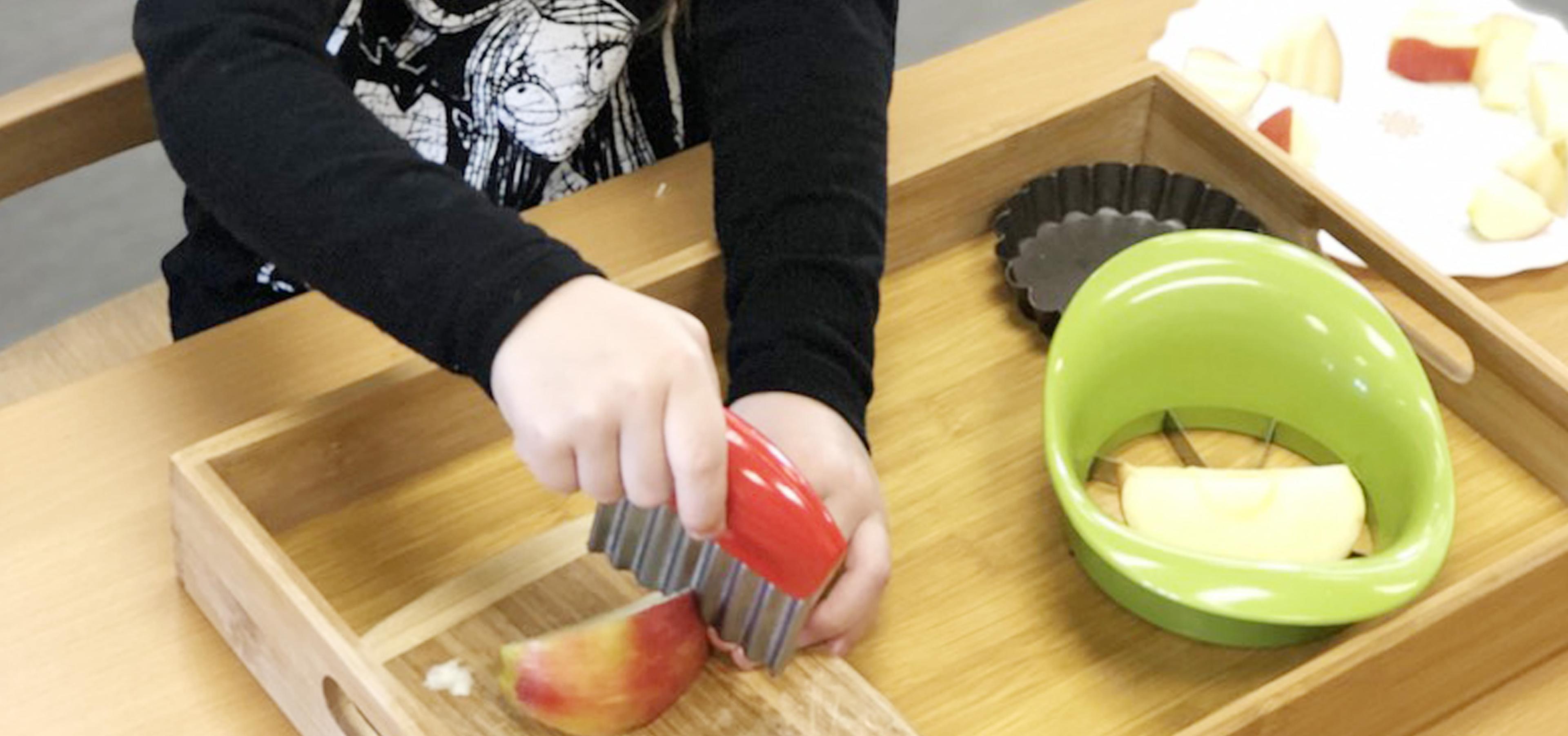The Montessori approach to education emphasises the importance of practical life skills, which includes learning how to prepare and serve food. In Montessori classrooms, children are taught to prepare simple snacks and meals as a way to develop their independence, fine motor skills, and sense of responsibility.
Overview of food preparation and serving:
Food preparation activities in Montessori classrooms typically involve tasks such as washing and slicing fruits and vegetables, spreading butter or jam on bread, and pouring drinks into cups. These activities are designed to be age-appropriate and safe for children to handle on their own, with the guidance of a teacher or classroom assistant.

Benefits of food preparation and serving activity:
- Develop practical life skills
- Provide opportunities for children to learn about healthy eating habits
- To explore different tastes and textures
- Children are encouraged to try new foods and to experiment with different combinations of ingredients, which can help to broaden their palates and foster a sense of curiosity about food.
- Emphasis on social skills and community building
- Children are encouraged to work together to prepare and serve food, which fosters a sense of cooperation and teamwork.
- They are also taught to serve food in a respectful and polite manner, which helps to develop their social skills and sense of etiquette.
Overall, food preparation and serving activities are an important part of the Montessori curriculum, as they help to develop practical life skills, encourage healthy eating habits, and foster a sense of community and social responsibility. By providing children with opportunities to prepare and serve food in a safe and age-appropriate way, Montessori educators help to instil important life skills and values that will serve children well throughout their lives.

